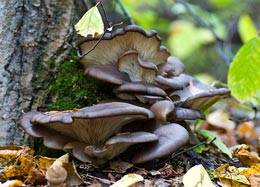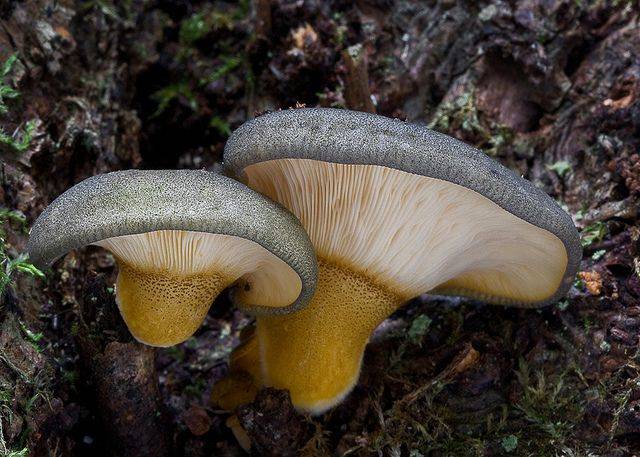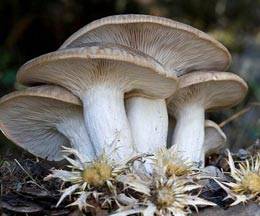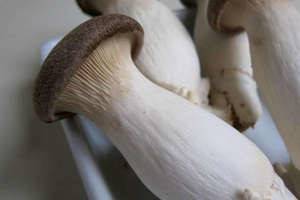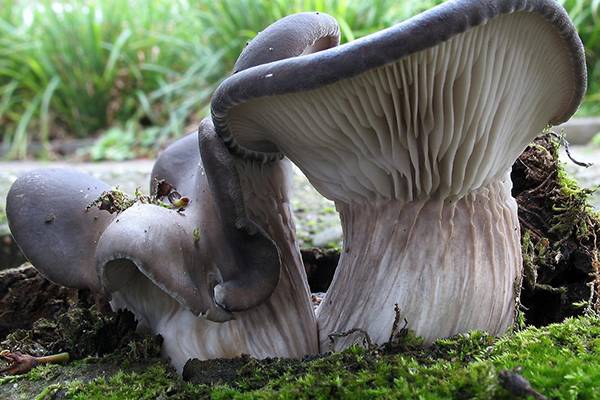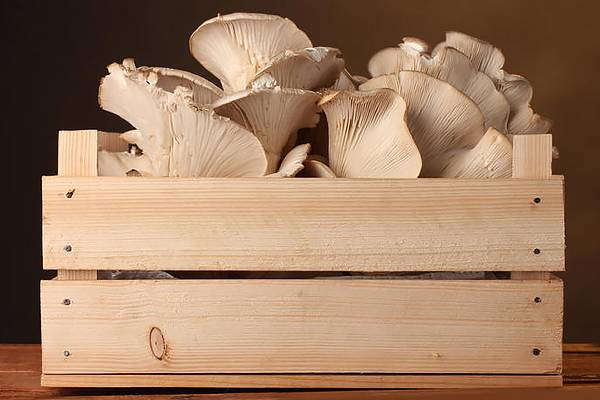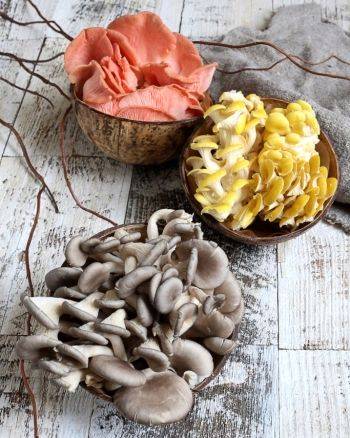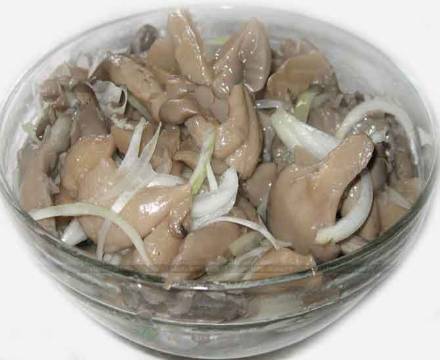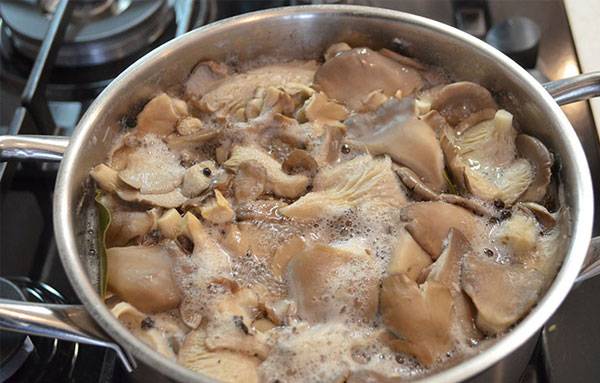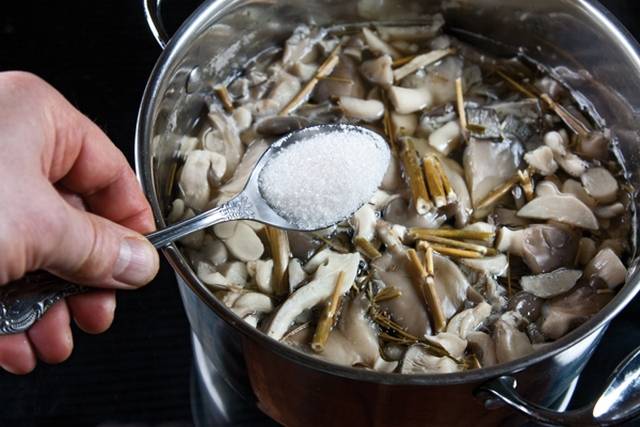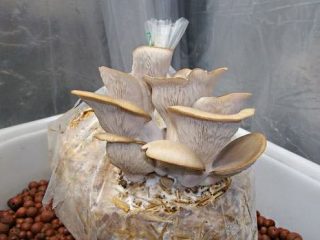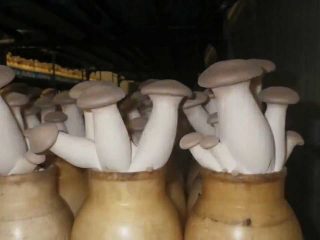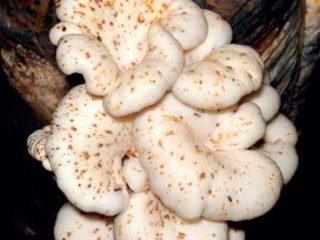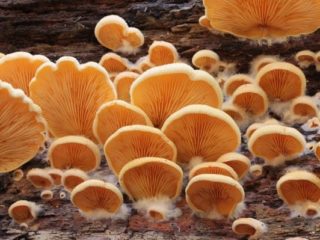Content
These mushrooms are not often found in the forest. But if you are lucky enough to find them, the mushroom picker will fill the basket very quickly. It's about oyster mushrooms. This mushroom has many varieties that grow in temperate climates. Most of them choose dead wood for their habitation, from which they assimilate the cellulose they need. They can also settle on weakened dying trees.
Description of oyster mushrooms
This lamellar mushroom most of all likes to grow on deciduous trees: willow, birch, aspen, oak, mountain ash. It resembles an oyster in shape, so one of its varieties has another name - oyster mushroom. It can grow in large colonies, reaching 30 cm in diameter by old age.
You can determine the age of the oyster mushroom by the color of the cap: the older it is, the lighter it is. This applies to the most common oyster oyster mushroom, which has a dark brown color. Her relative of the late oyster mushroom has a lighter hat.
There are oyster mushrooms with a very extreme color: lemon or elm lives in the Far East, and pink lives only in a humid and hot climate. In temperate climates, in addition to oyster and late oyster mushrooms, you can find pulmonary, which grows only on larch. Her hat is very light. Oyster mushroom grows in the south. She, in the absence of trees, settles on the roots and stems of umbrella plants.
In most oyster mushrooms, the leg and cap have grown together so that it is difficult to determine where one ends and the other begins. Sometimes the leg is completely absent, and the cap is attached directly to the tree, and very firmly. The only exception is the royal oyster mushroom with a thick rather long leg and a cap up to 12 cm in diameter.
By the way, this is the most delicious variety of all mushrooms of this type. The pulp of all oyster mushrooms is white, like the spore plates.
Several species are conditionally edible, but after a short boil, they are quite edible.
They can be used for all types of culinary processing: boil, fry, pickle and salt.
You can pick these mushrooms from spring, and they bear fruit until December.
At a winter temperature above plus five degrees, oyster mushroom begins to grow, so during a strong thaw it is quite possible to go to the forest for mushrooms.
This mushroom is easy to grow even at home, its industrial production is widely developed, it is almost always on sale.
This circumstance must be used and more often included in the menu of dishes from it, since the mushroom has considerable benefits. It is due to the composition of the oyster mushroom.
What useful nutrients are contained in oyster mushroom
- It contains 3.3% protein, which contains 10 essential amino acids.
- Dietary fiber contained in 100 g of oyster mushrooms is 0.1 of the daily requirement of a person.
- Diverse vitamin composition. Vitamins of group B, PP are presented in significant amounts for health. Oyster mushroom contains ergocalciferol or vitamin D2, which is rarely found in foods, as well as vitamin D.
- Rich mineral composition.It contains especially a lot of potassium, phosphorus and copper, there are quite rare selenium and zinc.
- Unsaturated omega-6 fatty acid and saturated fatty acids are vital for humans.
- It contains the antibiotic plurotin, which has anti-tumor and anti-inflammatory effects.
- This mushroom contains the anti-allergen lovastatin.
The benefits of oyster mushrooms
Such a rich composition makes it possible to use these mushrooms not only as a valuable food product, but also as a therapeutic agent. Here is a list of health problems for which oyster mushroom will be of invaluable help.
- Problems with bowel cleansing.
- Hypertension and problems with the cardiovascular system.
- Atherosclerosis.
- Nearsightedness or hyperopia.
- Oncological diseases.
- Allergy.
- Round helminth infestation.
Due to the presence of many medicinal substances in oyster mushroom, it helps in the following cases.
- It removes heavy metal salts and radionuclides. Therefore, it is included in the menu of people receiving radiation courses in the treatment of cancer.
- Breaks down cholesterol plaques and normalizes lipid metabolism.
- Frees the body from toxins by absorbing and removing them.
- It is a good prophylactic agent for the prevention of liver diseases, gastritis and ulcers in various parts of the digestive system. Oyster mushroom is able to cure them at an early stage.
- The calorie content of only 33 kcal per 100 g of the product allows it to be used as food for those who want to reduce their weight.
- It is able to fight bacteria, including E. coli, not only due to the antibiotic content, but also benzaldehyde, which is known for its antibacterial properties.
- Oyster mushroom contains a unique antioxidant, ergotaneine, which has not yet been found in other foods. Therefore, the mushroom increases immunity, improves the functioning of all organs and systems, and reduces the risk of cancer. The polysaccharides contained in mushrooms also increase immunity. They stimulate the thymus gland, which is responsible for the state of the human immune system.
- A considerable amount of phosphorus contributes to the normalization of calcium metabolism, improves the condition of nails, hair and joints.
- Strengthens the nervous system, improves the quality of sleep.
- Oyster mushroom tincture on alcohol heals even chronic ulcers.
- Antiallergen lovastatin not only relieves allergic reactions. Recent studies have shown that it is effective in the treatment of serious diseases such as multiple sclerosis, traumatic brain injury.
- Vitamin D, which in these mushrooms has a double daily rate, prevents tooth decay and normalizes blood sugar, preventing the development of both type 1 and type 2 diabetes.
But even such a truly healing mushroom can not be eaten by everyone.
Oyster mushroom harm and contraindication
Oyster mushrooms, like all mushrooms, contain chitin, which is harmful to humans in large quantities.
Mushrooms are necessarily subjected to heat treatment, which makes it possible to increase their assimilation by 70%.
There are other reasons that limit the use of this mushroom. This is a heavy food for the stomach, its use should be limited to the elderly and completely excluded from the menu of young children and pregnant women. You should not get carried away with oyster mushroom dishes for those who have serious problems with the kidneys, liver and gastrointestinal tract. And they are absolutely contraindicated for persons with individual intolerance to this product.
It is clear that we are talking only about benign mushrooms collected according to all the rules. They should not be stored longer than the prescribed period - no more than five days in the refrigerator. You also need to cook them correctly. First, the mushrooms are boiled for 15 minutes, and then any dishes are prepared from them. You need to boil oyster mushrooms if you decide to salt them.These mushrooms cannot be salted raw.
In everything, one should observe the measure. In order for these medicinal mushrooms to bring only benefits, they must be consumed in compliance with all the rules and in accordance with the recommendations of doctors.
